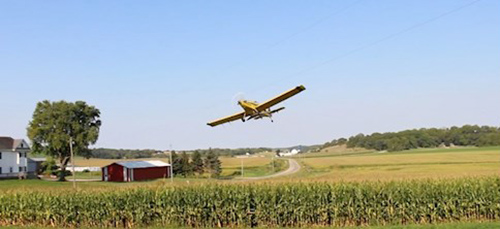
Yahara Pride Farms Encourages Environmental Stewardship
Established in 2012, Yahara Pride Farms is a farmer-led 501c(3) non-profit organization that strives to preserve agricultural heritage while simultaneously encouraging farmers to engage in proactive environmental stewardship within the Yahara Watershed. Participating farms employ practices that result in the preservation and enhancement of soil and water resources for today, and for generations to come. In 2018, farmers in the program reduced the risk of phosphorus delivery to Madison lakes and the Yahara River by 22,000 lbs.
Research has shown that the conservation practices endorsed by Yahara Pride Farms help to reduce greenhouse gases.
- Composting directly increases soil carbon storage by creating stable carbon and reduces methane and nitrous oxide emissions: greenhouse gases that contribute to climate change. Compost releases nutrients to the soil over a span of seasons. When farmers consistently spread compost on their fields they reduce the need for the application of commercial fertilizers. Farmers are not only saving on fertilizer costs, but they are also avoiding the greenhouse gases related to the production of that fertilizer.
- Compost is very nutrient dense and as a result, requires less trips across the field than traditional manure/nutrient application reducing fossil fuel use. When farmers apply liquid manure or other fertilizers before they are composted, many times the fields will require more tillage which releases greenhouse gases from the soil.
- Cover crops work to hold nutrients within the plant root zone of the soil, reducing costs and the carbon footprint associated with application of additional nutrients. In many cases, cover crops also result in reduced tillage. Cover crops work to condition the soil for next years seed bed, reducing the amount of tillage required.
- Strip till, no-till and reduced till decrease the amount of carbon released into the atmosphere by minimizing soil disturbance and the resulting oxidation of soil carbon.
To learn more about Yahara Pride Farms, these practices and other conservation practices promoted by the group go to yaharapridefarms.org

